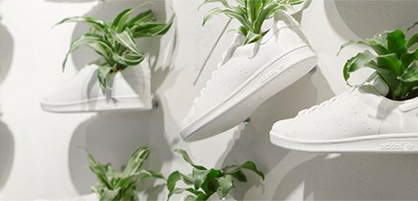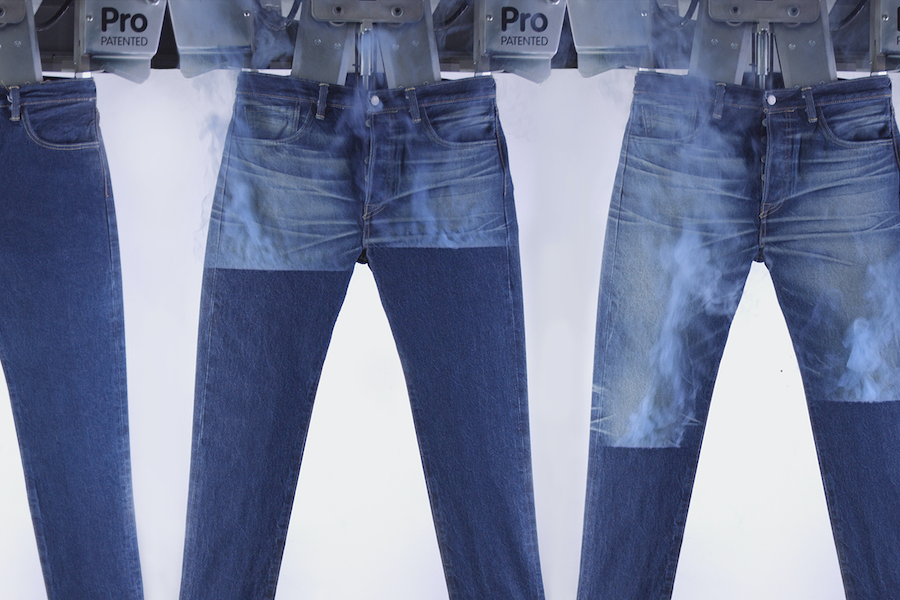#Sustainability
adidas: In 2021, for the first time, more than 60 percent of all products will be made with sustainable materials
“Sustainability is an integral part of the adidas business philosophy. We have continued to invest in sustainability initiatives during the coronavirus pandemic and we will significantly expand our range of sustainable products in 2021. To this end, for example, we have worked with our suppliers to create the structures that make it possible to process recycled materials on a large scale. Not only does our commitment make adidas more sustainable, but it also drives the development of the whole industry,” said adidas CEO Kasper Rorsted.
An overview:
- • For the first time in 2021, adidas will use more than 60 percent recycled polyester in its products. From 2024 onward, adidas is committed to using only recycled polyester.
- • Since 2015, adidas has been collaborating with the environmental organization Parley for the Oceans. In 2021, adidas aims to produce 17 million pairs of shoes with recycled plastic waste collected from beaches and coastal regions, after more than 15 million in 2020.
- adidas is continuously expanding its vegan product offer and completely renounces the use of fur.
- In cooperation with partners, adidas is developing plant-based leather, recycled cotton as well as a particularly climate-friendly running shoe.
- In partnership with the company’s suppliers, adidas aims to achieve global climate neutrality by 2050 and in its entire supply chain.
- Company-owned photovoltaic systems with a current installed capacity of 1.4 megawatts generate green electricity. adidas has reduced its overall carbon footprint at its company sites by more than 50 percent compared to 2015.
- Sustainability also for investors: adidas placed its first sustainability bond.
Cooperation with ‘Parley for the Oceans’ to protect the oceans
In 2015, adidas and Parley for the Oceans together presented the first shoe made with Parley Ocean Plastic at the United Nations in New York. Since then, adidas has produced many millions of pairs of such shoes made with recycled plastic waste from beaches and coastal regions. In 2020 alone, within the framework of this partnership, adidas and Parley have collected almost 7,000 tonnes of plastic waste – corresponding to around 350 million plastic bottles*. Using this waste, adidas aims to produce around 17 million pairs of shoes, among other products, in 2021, after producing more than 15 million pairs in 2020.
*Basic assumption: average weight of 20 grams per PET bottle
adidas expands polyester recycling ratio to over 60 percent
In addition to the Parley products, adidas is increasing the amount of recycled materials used in its overall product range. The share of recycled polyester has reached a percentage of ?over 60. The ‘Primeblue’ and ‘Primegreen’ labels mark products made with recycled materials. While offering full functionality and durability in sports, they avoid waste and preserve natural resources.
From the beginning, adidas designers consider the later reusability of their product in its development: The Ultraboost DNA Loop, which was raffled off to interested consumers in October 2020 for the first time, is made from one single material from sole to laces and is welded without glue. Once the shoe reaches the end of its life cycle, it can be shredded to pieces and reused. In the spring of 2021, adidas will launch the successor in a larger volume.
Furthermore, regarding cotton, adidas is participating in the development of recycled materials. In a research cooperation with Infinite Fiber, a Finnish start-up company, adidas and additional partners strive for developing a process to transform used clothes into a cotton-like material.
Vegan products contribute to animal welfare
For adidas, sustainability means using less plastic and less animal material. In 2020, adidas launched vegan versions of several classics such as the adidas Stan Smith, which quickly became bestsellers. This year, adidas seeks to break new ground: Together with partners, adidas is developing a new material, a purely biological leather alternative made from mycelium, and will use it for the very first time in the creation of footwear. In addition, adidas has committed to ‘Vier Pfoten’, an animal protection organization, to completely ban furs from the manufacturing of its products.
Reebok follows suit with a growing number of sustainable products on offer. The Forever Floatride GROW is made from natural materials such as algae, eucalyptus trees and natural rubber. Already in 2018, the brand introduced a plant-based shoe – the Cotton + Corn.

Environmental and climate protection
adidas has teamed up with footwear manufacturer Allbirds to create the world’s lowest climate footprint sports shoe. Manufacturing and transportation of this shoe are intended to include reusable materials as well as renewable energies.
At its corporate sites, adidas operates its own facilities to generate environmentally friendly energy. Alongside several photovoltaic systems with an overall peak capacity of around 1.4 megawatts, the company operates a modern facility for combined electricity and heat generation at its headquarters in Herzogenaurach. In the Rieste distribution center (Lower Saxony), the company uses biomass for heating. The overall carbon footprint of all company sites has been reduced by more than 50 percent compared to 2015.
adidas is working closely together with its suppliers to implement climate and environmental protection measures at the sites of partners in the supply chain. Various projects with suppliers aim to reduce carbon emissions and water consumption as well as preserve an intact environment. adidas sets its own standards, which often go beyond legal requirements at the locations of manufacturing. Since last year, adidas has committed to the so-called ‘Science-based Targets’, allowing independent external partners to evaluate the climate goals of the company. The objective: reach climate neutrality by 2050, globally and at all suppliers.
Staying fair in challenging times
The coronavirus pandemic is a huge challenge for suppliers as well. adidas remains a reliable partner, adhering to all agreements and supporting the manufacturers with know-how regarding the implementation of enforced hygiene measures. Adhering to labor rights remains a top priority. Accordingly, in November 2020, the renowned Corporate Human Rights Benchmark ranked adidas as the best company worldwide in the apparel industry with regard to ensuring human rights and labor rights in the supply chain.
Sustainable offers for investors
Sustainability is vastly becoming important for investors: the adidas sustainability bond amounting to € 500 million issued in September 2020 was five times oversubscribed. Proceeds from the offering will be used in endeavours such as procuring recycled materials, investing into renewable energy production and supporting underrepresented communities.















